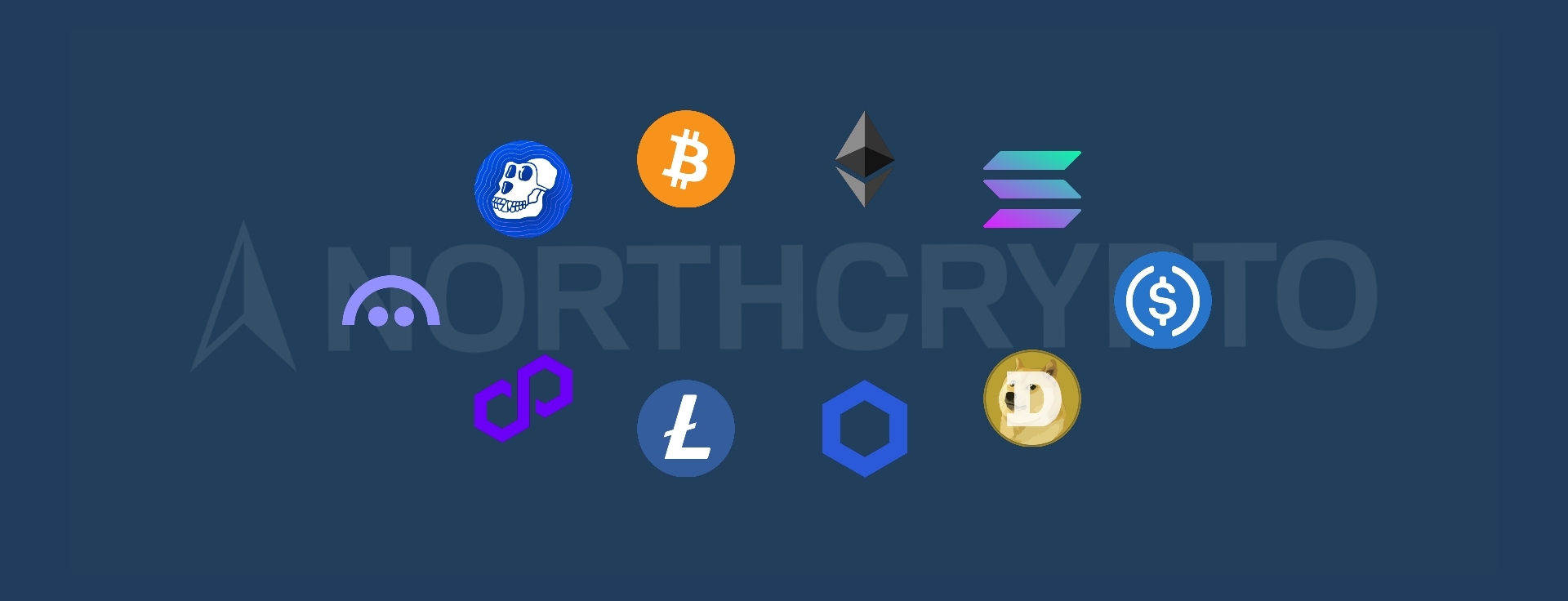
Bitcoin ETF is one of the most talked about topics this summer. What does the abbreviation ETF even mean in practice and what exactly is a Bitcoin ETF? This text discusses Bitcoin as an investment and considers how Bitcoin ETFs change Bitcoin's position in the eyes of investors.
Bitcoin as an investment
Bitcoin is the world's largest and oldest operating cryptocurrency. Over the years, Bitcoin has steadily increased its popularity among investors, and today it can be found in the portfolios of more and more investors. The reason behind the growth of Bitcoin's popularity is its uniqueness compared to any other investment.
Bitcoin is an extremely scarce digital commodity. There are currently around 19.5 million bitcoins in the world and the number of new bitcoins entering the market is halved every four years (210,000 blocks). A new block of the Bitcoin blockchain is mined every 10 minutes and the mining reward for each new block is currently 6.25 bitcoins. Bitcoin's next block reward halving is expected in the spring of next year (2024), when the block reward will be halved from the current 6.25 bitcoins to 3.125 bitcoins. Bitcoin's built-in halving effectively prevents inflation and enables bitcoin's role as a store of value. Today, it is often possible to invest in Bitcoin in different ways, and in recent years several Bitcoin-related investment products have arrived on the market. This text discusses what is meant by Bitcoin ETF and how a possible Bitcoin spot ETF would change Bitcoin's position as an investment target.
What is an ETF?
An ETF (exchange-traded fund) is an exchange-traded fund that tracks the price of its underlying asset. This means that, for example, a Bitcoin ETF tracks the price of bitcoin. ETF funds are mainly passive funds, i.e. they do not have portfolio managers familiar from traditional funds. Thanks to this, ETF investing can be seen as very cost-effective compared to many other investment methods. Various ETFs have been on the market for a long time, so they are more approachable as an investment instrument for many investors than traditional crypto investments.
Bitcoin ETF
A Bitcoin ETF is practically an exchange-listed fund that contains bitcoins or other assets linked to the price of bitcoin. An ETF is a highly regulated financial instrument traded on traditional markets such as NASDAQ or the New York Stock Exchange (NYSE). Bitcoin ETF trading takes place on more traditional markets instead of cryptocurrency exchanges. Bitcoin ETF enables a large group of investors to trade bitcoins using an investment instrument they are already familiar with. In this way, investing in bitcoin also becomes possible for investors who prefer more traditional investment targets such as ETF funds instead of direct crypto-investments in their own investment activities.
Bitcoin ETFs play a key role in expanding the potential investment base. Bitcoin is by no means the easiest asset class on the market, because storing and managing bitcoins, for example, can cause gray hair for larger institutions. In this case, many institutions may have left the opportunities offered by the cryptocurrency market completely unutilized. Bitcoin ETFs play a key role, especially as enablers of larger institutions entering the market.
Bitcoin future and spot ETF
Bitcoin ETF as a whole includes two types of ETF funds. These are Bitcoin futures and spot ETFs. Of these two, we will first take a closer look at Bitcoin futures ETFs. In the investment market, future refers to a derivative contract in which the investor undertakes to buy and sell the target asset of the future (e.g. bitcoin) at a certain time. There are several different Bitcoin future ETFs on the market today, but what they have in common is that they are not directly linked to Bitcoin's price development. When investing in a Bitcoin futures ETF, the investor invests in derivatives that follow the price of bitcoin instead of bitcoin.
Bitcoin spot ETF, on the other hand, refers to an ETF fund where investors can invest in bitcoin at its spot price. This differs in a key way from a futures ETF, where investors must speculate on the future price of bitcoin instead of the current spot price. The Bitcoin spot ETF always contains the number of bitcoins corresponding to the ETF shares. This is by no means any derivatives that follow the price of bitcoin, but real bitcoins. For this reason, the Bitcoin spot ETF provider must always have a partner from the traditional crypto world who manages the custody of the bitcoins behind the ETF shares. When real bitcoins are always found in the background of ETF shares, the growth in demand for spot ETFs can naturally also be seen in the fact that the demand for bitcoin and thus the price also rise.
The Bitcoin spot ETF offers new opportunities for a wide variety of investors, from large institutions to smaller, small investors accustomed to traditional markets. In addition, it should also serve investors who are currently in the crypto market, because an increase in demand always has a positive effect on the price. However, from the investor's point of view, there is one small obstacle here. At the time of writing, no Bitcoin spot ETF application has been approved yet.
Bitcoin spot ETF in the future
At the time of writing, it strongly appears that the Bitcoin spot ETF is closer than ever before. The biggest reason for this can be considered the Bitcoin spot ETF application submitted in June by the world's largest asset manager, BlackRock, which manages almost 8.5 trillion assets. BlackRock is one of the most prominent financial players in the world, so it probably wouldn't submit an ETF application unless it was very sure that the application would go through. In the wake of the Bitcoin spot ETF application filed by BlackRock, a large number of other prominent asset managers also followed, when the world's third largest asset manager Fidelity and asset managers Invesco, WisdomTree and Valkyrie submitted their own applications.
With these prospects, we will hear about the results of BlacRock's Bitcoin spot ETF application no later than the beginning of 2024. If BlackRock's application goes through, there should be no major obstacles to the applications of other large fund managers either. In the best case scenario, we can be in a situation in the first half of 2024 where numerous large asset managers get permission to offer Bitcoin spot ETF funds around the same time. Since bitcoins must also be found in the background of these ETF shares, this should also have a positive effect on the bitcoin exchange rate.
And that's not all, because the next bitcoin halving is supposed to happen in April 2024. At best, a large number of new investors could join the crypto market right around the time of Bitcoin's halving. Many certainly know what kind of effect halvings have had on the course of bitcoin throughout history, so let's wait with interest to see what next spring will bring.
Mikko Soon
Head of Private Banking
Last updated: 14.07.2023 13:00




